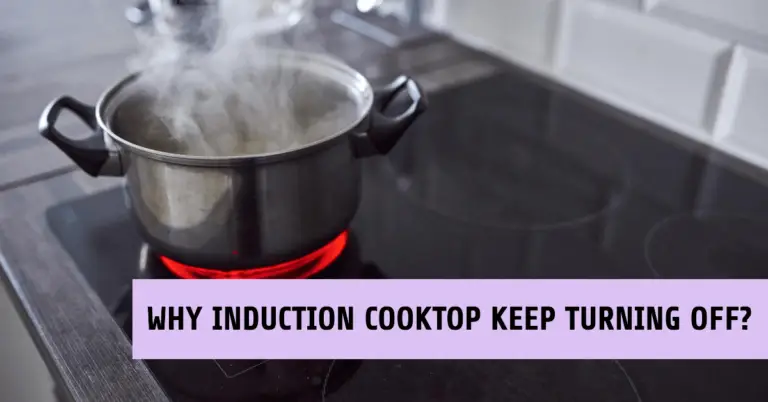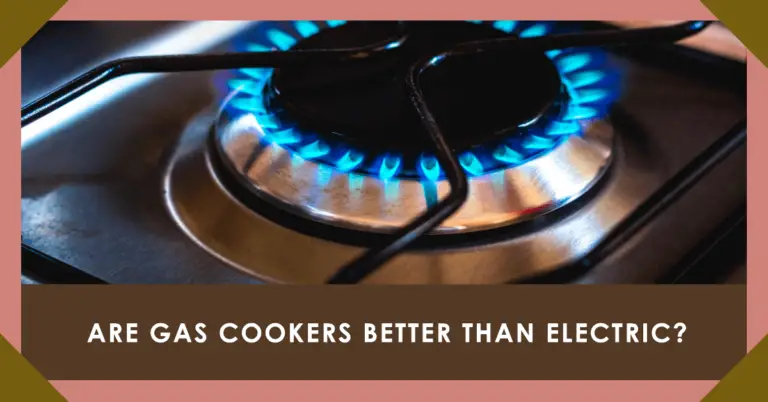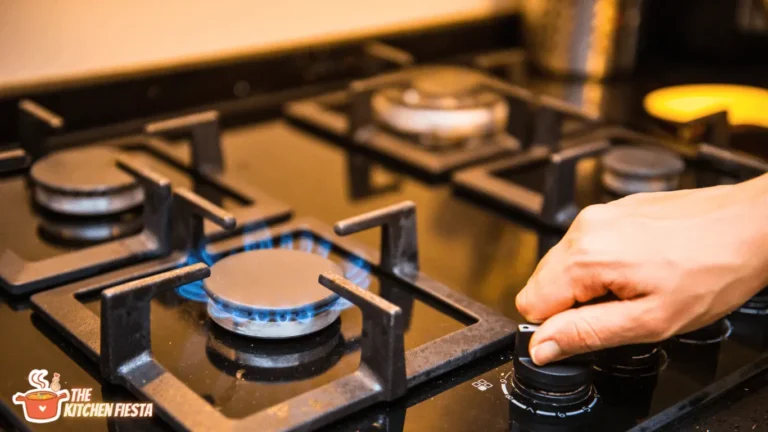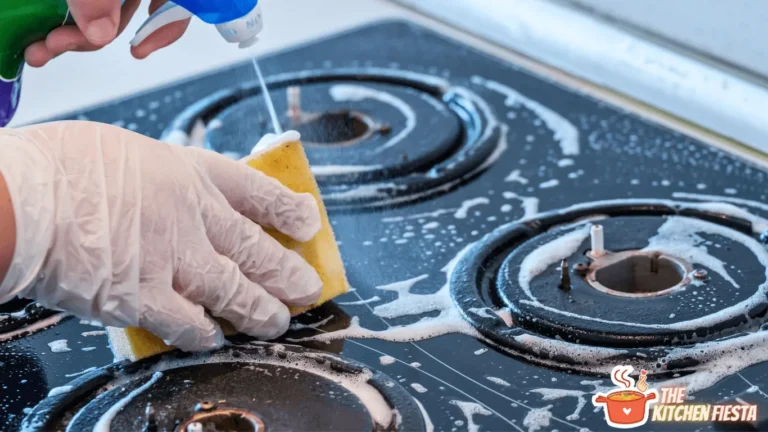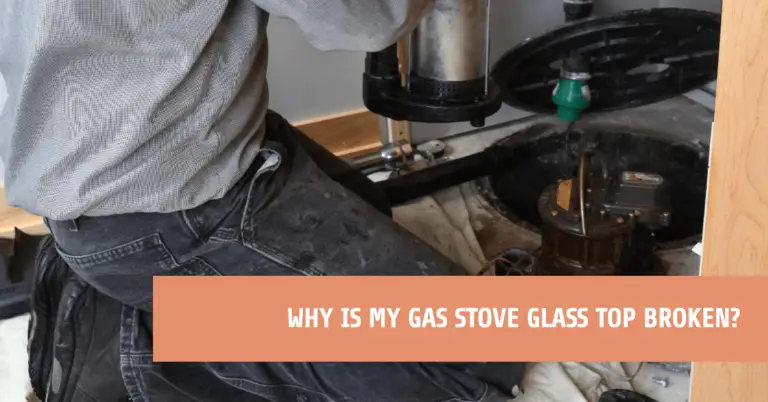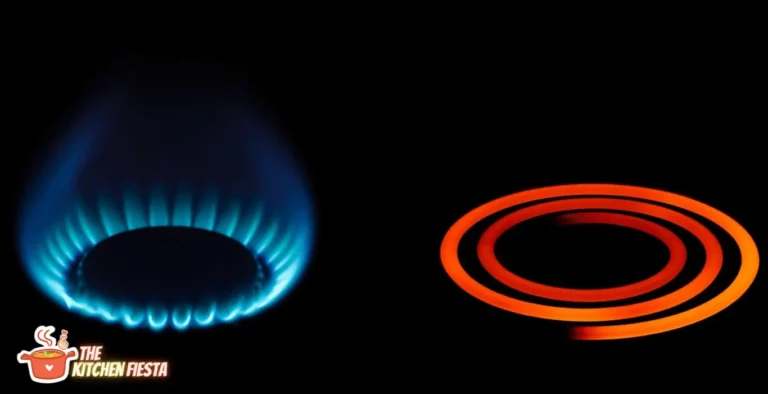Why Is My Gas Stove Making Noise When It’s Off? Causes & Fixes
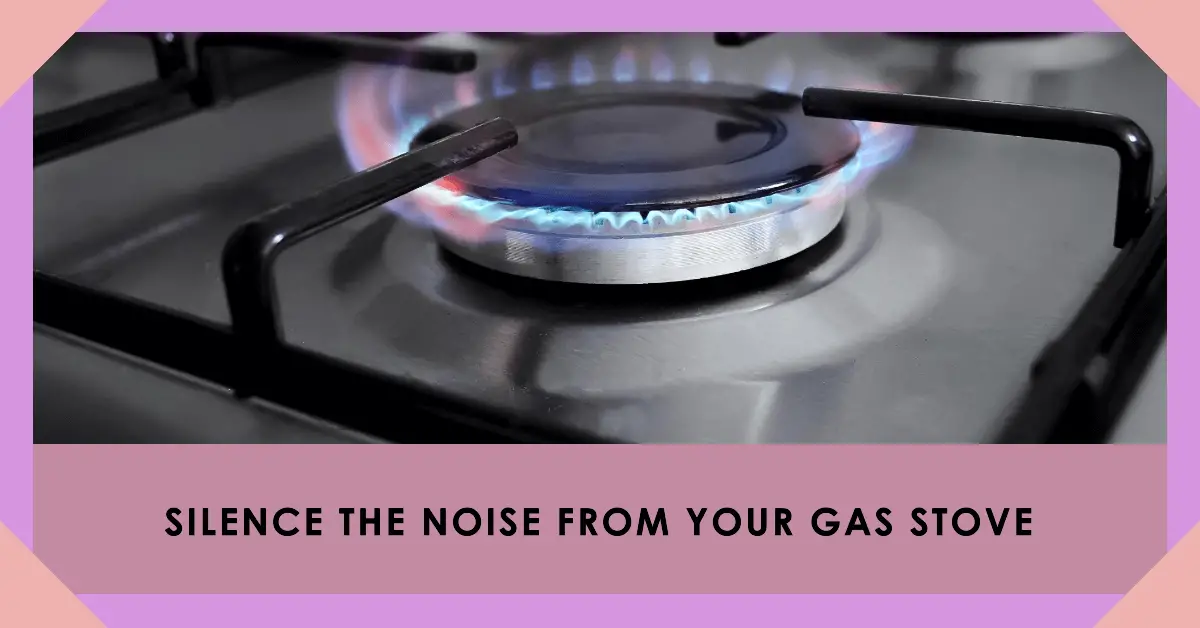
The soothing sizzle of cooking food on a gas stove is a staple sound of the kitchen. But what if your gas stove starts making strange noises when it’s switched off? From clicking and popping, to downright hissing or humming, these unexpected sounds coming from your dormant gas appliance can be peculiar and concerning.
Should you worry about the odd noises your gas stove makes when not in use? Or are some sounds perfectly normal for a gas cooktop even when turned off?
The short answer: Some noises are typical, while others indicate a problem needing attention. Gas stoves can make sounds like popping or sparking as part of their safe operation. But constant loud noises, or any hissing which could signal a dangerous gas leak, mean it’s time to take action.
This comprehensive guide covers all the potential reasons your gas stove is making noises when not running, how to interpret the sounds, and what you need to do to fix the issue. Gain the knowledge to diagnose problems, make repairs, and ensure your gas appliance operates quietly and safely for years to come.
What Types of Sounds Can Come From a Gas Stove When Off?
Modern gas stoves rely on a number of mechanical components to function smoothly, from burner tubes and igniters to regulators and valves controlling gas flow. This complex operation means there are a variety of sounds your appliance can make outside of its normal cooking noises.
Here are the most common noises a gas stove can produce when switched off, along with what typically causes them:
Hissing or Whistling
A hissing or high-pitched whistling sound coming from your gas stove when not in use is often a sign of a potentially dangerous gas leak. This sound is gas escaping from a loose connection or damaged line. Immediately turn off the gas supply to your stove and contact a technician to inspect for leaks. Don’t use the appliance until it is properly repaired.
Clicking or Popping
Hearing the burners on your gas stove make clicking or light popping noises when turned off is generally no cause for concern. This is simply the metal burner and internal stove components expanding and contracting as they heat up from use, then cool down when turned off. The metal parts rub against each other, creating a clicking sound.
Buzzing or Humming
Loud buzzing, humming or vibrating sounds point to an issue with your gas stove’s internal components. Appliances like the transformer, fan blades, or regulator could be malfunctioning. Have an appliance repair expert diagnose the specific cause and needed fixes.
Loud Sparking or Snapping
The ignition system on a gas appliance creates sparking sounds to light the burners. But constant hard sparking or snapping noises when your stove is off likely indicates a problem with the electronic ignition or gas flow. Contact a technician to adjust or replace faulty ignition components before using the stove.
Why Do Gas Stoves Make Noise When Switched Off?
Understanding the science behind what causes your gas stove to make noises even when not running can help decipher if the sounds are normal or problematic. Here are the most common reasons you’ll hear sounds coming from your dormant appliance.
Residual Gas Ignition
Gas burners operate by igniting natural gas or propane to create a flame. When you turn your gas stove off, there is always some residual gas left in the lines and burner tubes.
Components like the burner caps and igniters are still hot when first turned off. The residual gas can briefly keep igniting on the hot surfaces, causing soft popping or clicking sounds as the remaining gas burns off. This is perfectly safe and normal operation, indicating the stove is working properly.
Metal Expanding and Contracting
One of the most common reasons for noises from an inactive gas stove is the natural expansion and contraction of metal. Cast iron or stainless steel burner tubes, control knobs, grates, and other internal stove parts expand when heated from cooking.
As the appliance cools down with use, these metal components shrink and contract. This shrinking causes them to rub or click against each other, creating popping and ticking noises. This perfectly harmless sound usually diminishes as the stove completely cools.
Faulty Components
Sometimes unusual buzzing, loud popping or constant clicking sounds don???t stop when a gas stove is switched off. This indicates an issue with faulty components within the appliance.
Burner tubes can become misaligned or develop faults allowing gas to escape. Internal stove valves guiding gas flow can wear out over time and malfunction. Damaged or poorly connected igniter wiring creates sparking issues.
These defective parts then continue making noise whether the stove is on or off. A technician needs to diagnose and replace the problem components.
Disrupted Gas Flow
Noises like repeated sparking or clicking when your gas stove is inactive can also be caused by problems with the gas supply itself. Issues like low inlet gas pressure, blockages in the burners, or a faulty regulator valve can all prevent the proper flow of gas.
This disrupts the ignition and extinguishing of the burners. You may hear constant clicking as the igniters repeatedly spark to light the gas. Only when the gas flow issue is corrected will normal quiet operation resume.
How to Stop Gas Stove Noises When Off?
Unusual noises coming from your inactive gas appliance can be frustrating and concerning. Luckily, many stove sounds can be fixed with some simple DIY troubleshooting and maintenance. Here are effective tips to stop your dormant stove from making noise.
Inspect the Burners
One of the first steps is to thoroughly inspect your gas stove’s burners. Turn off the gas supply and let the stove fully cool if it was recently used. Then lift off any removable burner grates, caps and tubes.
Look for dirt, grime or debris that could be obstructing gas flow through the burner openings. Use a stiff brush and compressor air to clean any areas blocked by grease or food residue.
Also check that the burner tubes align properly with the burner heads. Misalignments prevent clean gas ignition, creating popping sounds. Realign any skewed components.
Check the Ignition System
Odd clicking or excessive sparking sounds are often linked to a faulty ignition system. When the stove is completely cool, examine the ignition electrode and connecting wire. Look for any visible damage or heavy wear on the spark electrode tip.
Ensure the electrode wire is tightly secured to the igniter and burner. If the electrode seems damaged or worn, replace it. Also verify that inlet gas pressure is optimal for ignition. Schedule professional adjustments if needed.
Clean the Gas Valves
The valves controlling gas flow can become gummed up over time, preventing smooth burner ignition. Use a spray valve cleaner specifically made for gas stove appliances to remove any built up grease or debris inside the valves causing issues.
Give the valves a few test turns to ensure they open and close properly. Replace any damaged or faulty valves to restore quiet performance. Consult a technician if unfamiliar with repairing gas stove components.
Tighten Loose Parts
Popping or clicking sounds often come from loose stove parts rattling as the appliance cools and contracts. Give all burner caps, sealing gaskets, control knobs, and fastening hardware a tighten with a wrench or pliers to secure any loose pieces.
Also inspect flexible gas line hoses, ignition wires and other connecting components for damage, and replace any worn parts. Use thread sealant on fittings to prevent gas leaks. Proper tightening and sealing keeps all stove parts stable and quiet.
Call a Technician for Repairs
For gas stove noises that persist despite home maintenance, the underlying cause likely requires professional service. Any sound indicating a possible gas leak needs immediate appliance technician attention to check the lines and valves.
Constant loud popping or humming also means there is a faulty component or gas flow issue a trained repair expert needs to diagnose and fix. For extensive ignition repairs or valve replacements, always defer to a qualified gas appliance technician to ensure safety.
Warning Signs to Call a Professional for Gas Stove Repairs
While some noises are harmless, other sounds and situations definitely warrant contacting a professional gas appliance repair technician rather than attempting DIY remedies.
Here are the warning signs indicating you need expert stove service and repairs:
- You detect the smell of natural gas anywhere in the home.
- Burners are sparking repeatedly but failing to ignite after several tries.
- You hear distinct hissing or whistling noises coming directly from the stove.
- Loud popping or clicking continues nonstop even when the stove is fully cooled.
- Ignition issues are occurring across multiple burners on the stove.
- The gas stove is over 10 years old and has never had a professional service.
- You don’t feel fully comfortable inspecting or repairing a gas appliance.
Gas leaks and repeated ignition failures can be hazardous, so contact a certified gas stove repair company immediately in these situations. For older stoves, the accumulation of faults means it’s wise to have a technician perform a full diagnostic service to identify any underlying issues before they become bigger problems. If you aren???t trained in gas appliance repairs, call in the experts right away at the first sign of trouble.
Frequently Asked Questions About Noisy Gas Stoves
If your gas stove is making strange noises when switched off, you likely have some questions about what???s normal and what could be wrong. Here are answers to some of the most common questions about noisy gas stoves.
Is it normal for my gas stove to make some noise when turned off?
It is perfectly normal for gas stoves to emit some minor noises when first turned off, such as light popping or ticking as components cool. This is caused by residual gas ignition and the expanding/contracting of metal parts. However, loud constant noises indicate a problem needing repair.
What causes an annoying buzzing or humming sound from my gas stove?
These types of vibrations commonly come from an issue with your stove???s internal electrical components. The most likely culprits are a damaged transformer, a stuck fan, or problems with the gas regulator. An appliance technician can isolate the origin of the sound and fix the defective part.
Why does my gas stove keep clicking repeatedly when it’s off?
If the clicking or popping sounds don???t diminish as your stove fully cools, this points to a problem like misaligned burners, failing valves, or disrupted gas flow. The appliance needs professional repairs so the burners can ignite and extinguish smoothly and quietly.
Should I worry about sparking noises coming from my inactive stove?
The ignition system will spark at first when the stove is turned off as residual gas burns up. But if you hear repeated loud sparking from your inactive stove, the faulty ignition needs professional attention so hazardous gas buildup doesn’t occur.
How can I get my noisy gas stove fixed?
Start with inspecting the burners, valves and ignition components to see if you can resolve any minor issues. But if the stove keeps making abnormal noises, contact a certified gas appliance repair technician to properly evaluate the problem and make any necessary repairs to restore quiet performance.
Key Takeaways on Diagnosing and Fixing Noisy Gas Stoves
Dealing with unusual noises from your gas stove can be confusing and concerning. Use this summary of the key tips covered to ensure your stove operates safely and quietly:
- Identify exactly what type of sound the stove is making when switched off, and whether it’s potentially hazardous like a gas leak.
- Understand the common reasons for various gas stove noises, like residual gas ignition or faulty components.
- Try DIY maintenance steps first like cleaning burners, tightening parts and inspecting the ignition.
- If noises persist, call in a professional gas appliance repair technician to properly diagnose and fix the problem.
- For any gas leaks, ignition failures, or complex repairs needed, always rely on a qualified expert.
- With routine care and repairs when required, your gas stove will function flawlessly for years without annoying noises or safety risks.
Taking some time to interpret the sounds coming from your inactive gas stove will help you determine when they’re harmless, or when corrective action is required. With proper maintenance and swift repairs when problems arise, you will be able to confidently cook without distraction on a quiet and safe gas appliance.

